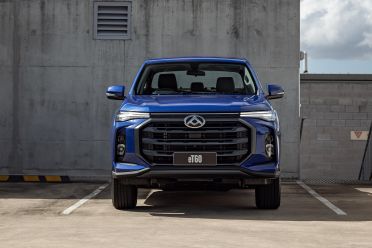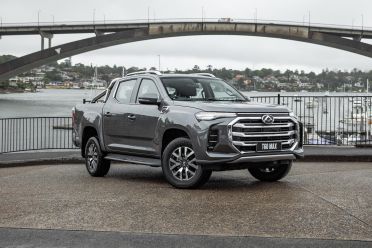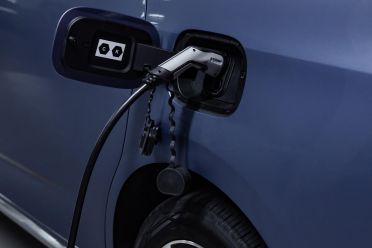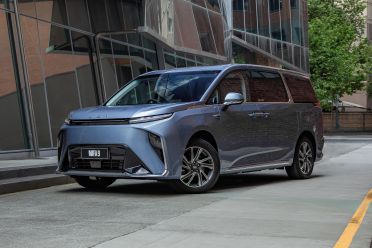The current LDV eT60 and eDeliver 9 are electric versions of diesel cars. When the brand’s next-generation vehicles start arriving, that script will be flipped.
“The G10 replacement vehicle will be developed and ADR [complied] first as an electric, and then later it will come as an [internal-combustion model],” LDV Australia general manager Dinesh Chinnappa told CarExpert.
“The replacement of the current pickup is also developed as an electric first, and then it comes as an ICE vehicle second. This is LDV Australia’s new reality; our parent company is now in that stage, or that phase, or that tipping point where it’s producing EV first, and looking for ICE second,” he said.
Exactly when the G10 and T60 replacements will arrive isn’t locked in – we know it will be in the next two or three years, but more precise timing hasn’t been confirmed.
That’s not to say LDV is abandoning diesel and petrol power just yet. To date in 2023 it has sold 46 electric cars across its MIFA 9, eT60, and eDeliver 9 ranges, accounting for just 0.5 per cent of its total deliveries according to VFACTS data.
Mr Chinnappa acknowledged the fact internal-combustion remains LDV’s core business in Australia, given how limited the market is for electric commercial vehicles in 2023.
“We remain at LDV Australia very much focused on our core business today, which is our ICE range. I’m selling a handful of electric [vehicles],” Mr Chinnappa told CarExpert.
“We’re not about to flick a switch and become electric overnight,” he said.
The arrival of the new, electric LDV ute won’t necessarily mean the end of the existing T60 Max with its diesel powertrain, as the brand looks to smooth the transition from internal-combustion to electric power.
Currently, it’s using the rollout of electric vans and utes to lay the groundwork for what’s to come.
“What we’re trying to do at the moment is use our first-to-market leader advantage to do all the learning,” he told CarExpert.
“Get the network ready, get ourselves ready … so when the explosion [of demand] occurs, which I believe it will happen, we’ll be sitting there primed.”
That explosion could happen quickly, too.
Mr Chinnappa points to New Zealand, where government support has helped accelerate electric car sales, as an example of what could happen locally when the Federal Government locks in emissions standards for our market.
“The New Zealand government made some announcements which virtually said ‘if you buy an EV we’re going to give you $8000, and if you buy an ICE vehicle we’re going to penalise you’,” Mr Chinnappa said.
“Things can change very, very, very quickly depending on government policy and how it’s deployed,” he said.





